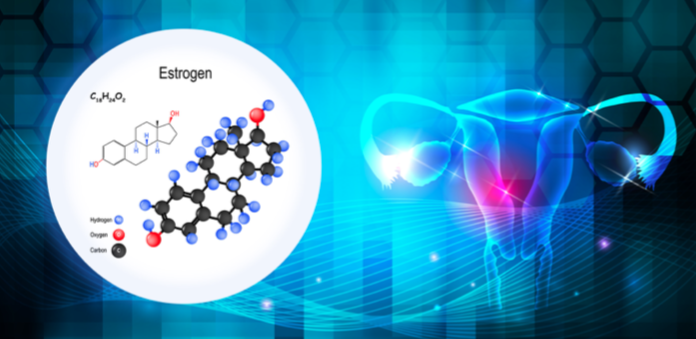Menopause impacts virtually every system in our bodies, and which means that we have to start taking a more holistic approach to how we address those issues. This process happens slowly over three stages: perimenopause, menopause and postmenopause.
How does each system interact with each other before/during/after menopause? How do the estrogens affect all of these systems in different ways, and what can we do to help regain that balance?
Estrogens are hormones that are important for sexual and reproductive health, mainly in women. They are also referred to as female sex hormones. The term “estrogen” refers to all of the chemically similar hormones in this group, which are estrone, estradiol (primary in women of reproductive age) and estriol.
Estrogen receptors can be found everywhere in the body, from the skin to the brain, and even in the bones. These estrogen receptors bind onto estrogen molecules that get circulated throughout the body. When estrogen levels are imbalanced or low, they can’t bind onto estrogen receptors effectively. Without enough estrogens to bind onto receptors, the body can’t metabolize those estrogens to regulate other processes.
Your hormones are greatly influenced by your genes. Before menopause, the main source of estrogen in women is the ovaries. The predominant type of estrogen is oestrodiol (E2), which is a strong form of estrogen. After menopause, the main sources of estrogen are the adrenal glands and fat tissue, and the predominant type of estrogen is oestrone (E1), which is weaker than oestrodial (E2). The specific genes control the rate at which you produce estrogen. Studies show that genes involved in AMPK (an enzyme essential for maintaining energy balance) and estrogen production can be pivotal players in follicular development process. In addition, a strong cross-talk can exist among AMPK, BMP signaling, and estrogen synthesis systems in ovary. Genetics along with diet and lifestyle can lead to low or high estrogen levels, both of which are undesirable. Estrogen can take other forms in the body, some healthy, some less so. The not-so-healthy kind is very strong and can be a risk factor for developing estrogen-dependent conditions. This also largely depends on specific gene activity and how your diet and lifestyle impact this. Estrogen needs to attach to specific estrogen receptors in specific cells where it is needed. These receptors are also regulated by genetics.
Finally, body needs to clear out hormones that have done their job. This happens largely via the liver. Clearing processes are driven by genetics but they also depend on gut health. Menopause changes your gut microbiome. The imbalance of estrogen affects hormone receptors that live inside your gut, which in turn has an effect on how well your microbiome performs. It also has an effect on the balance of good bacteria that exist in your microbiome. When good bacteria start to decrease, your gut microbiome suffers. This can cause things like bloating, indigestion, decreased nutrient absorption, and much more.
While you can’t avoid menopause or most of its symptoms, you can work to lessen its effects and feel more comfortable as your body changes. You can survive and thrive during this natural change.
Fitgenetix approach of profiling gut health combined with your genetics can give you a personalized approach to navigating your health during menopause. We want to empower you to make the necessary diet and lifestyle changes to get you back to feeling fabulous! With little or no drugs.


